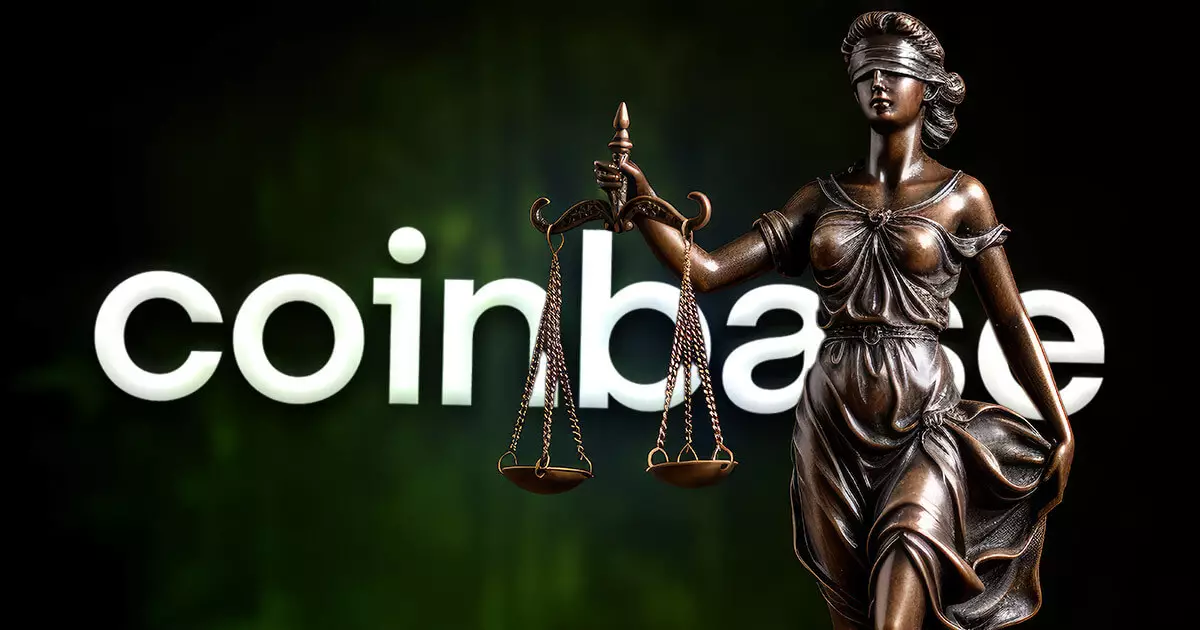In a significant legal move, BiT Global has initiated a lawsuit against Coinbase, a dominant player in the U.S. cryptocurrency market, alleging serious anti-competitive practices. The accusations stem from Coinbase’s recent decision to delist wrapped Bitcoin (WBTC) from its platform in favor of its proprietary offering, Coinbase Wrapped Bitcoin (cbBTC). This lawsuit not only highlights the ongoing tensions in the rapidly evolving crypto landscape but also emphasizes the need for robust regulatory scrutiny in a market that often grapples with issues of fairness and transparency.
BiT Global’s court filing, dated December 13, alleges that Coinbase is systematically undermining competition to solidify its grip on the wrapped Bitcoin market. This reveals a broader concern about market manipulation and the ethical implications of leveraging monopolistic power to stifle emerging competitors.
The complaint outlines that Coinbase’s strategy to replace WBTC with cbBTC is indicative of anti-competitive behavior, potentially violating U.S. antitrust laws. BiT Global has articulated that this deliberate maneuvering aims to bolster Coinbase’s revenue through increased transaction fees. It points out the discrepancy in Coinbase’s justifications for the delisting, notably its claim that WBTC did not meet listing standards. BiT Global challenges this assertion by contrasting it with Coinbase’s recent decision to list meme tokens like PEPE and MOG, which raises questions about the integrity of the purported listing criteria.
The underlying implications of this lawsuit suggest that Coinbase’s actions may not merely reflect a competitive strategy but could potentially disrupt the ethos of decentralized finance (DeFi) which hinges on fair competition and innovation.
Economic Implications and Market Control
BiT Global’s lawsuit against Coinbase is not only about legal recourse; it also highlights significant economic implications in the rapidly evolving cryptocurrency environment. The replacement of WBTC with cbBTC raises critical questions regarding market control and the potential monopolization of wrapped Bitcoin products. By prioritizing its own product, Coinbase is effectively maneuvering to dominate an essential segment of the crypto market.
The emerging landscape indicates that if Coinbase successfully stifles competition, it could lead to reduced choices for consumers and increased costs, which contradicts the fundamental principles of a free market. Furthermore, the transaction fee model that may come into play with cbBTC could exacerbate this issue, disproportionately benefiting Coinbase at the expense of broader user choice and innovation.
Central to the controversy is the broader issue of decentralization in the crypto space, which stands as a key tenet for many innovators and investors. BiT Global’s pursuit of legal action is presented as a means to restore competitive balance and counteract centralization, which threatens the very fabric of decentralized finance. The firm’s role as a custodian for WBTC following BitGo’s strategic shift has made it a critical player in maintaining the decentralized ethos that many believe is crucial for the future of cryptocurrency.
By attempting to eliminate unfair competition, BiT Global seeks not only to protect its own interests but also to safeguard the principles of open-access and fair competition that underpin innovations in blockchain technology and decentralized networks. The actions taken against Coinbase are seen as a necessary stand against what could be perceived as monopolistic tendencies threatening the future of the crypto market.
The outcome of BiT Global’s lawsuit against Coinbase could have far-reaching implications for the cryptocurrency industry. As the regulatory landscape begins to take shape, this case exemplifies the urgent need for clarity and governance to ensure fair play in a sector marked by rapid growth and significant volatility.
The issues raised in this lawsuit bring to the forefront critical discussions about competition, market control, and the importance of maintaining a balanced ecosystem within the cryptocurrency market. Legal benchmarks set by this case could pave the way for future regulatory frameworks aimed at preserving the foundational principles of decentralization and innovation, ensuring that no single entity can control a significant portion of this burgeoning market. As the lawsuit unfolds, the crypto community watches closely, recognizing that the outcomes may redefine competitive standards and operational practices in the industry.


















